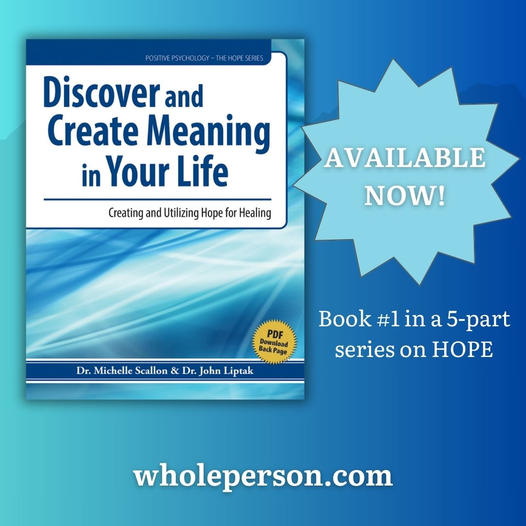Hope-based resilience helps people overcome stress. Stress is the biggest obstacle that people experience. In a recent American Psychological Association* survey, the researchers found the following statistics about stress:
- 80% of all people surveyed have experienced physical symptoms of stress.
- 48% of people have suffered from sleep disorders due to prolonged exposure to stress.
- 33% of the population considers their stress level to be extremely high.
- 70% of employees experience stress at work so much that they are unhappy doing their jobs.
What is Hope Management Theory?
While most therapists work to help people manage stress and its ancillary emotions (i.e., anger, anxiety, sadness), Hope Management Theory suggests that hope is a natural way to build hope-based resilience and overcome the effects of stress. The following are some of the central beliefs of a Hope Management Theory approach:
- Hope is the most potent, positive, universal human emotion, characterized by intense feelings of motivation, optimism, and elevated mood about the future. Therefore, people need to manage the positive components of hope like they similarly manage the negative aspects of stress.
- Feelings are more robust than thoughts and behaviors, thus they create thought patterns and direct behavioral routines.
- Hope functions as a self-motivator, influencer, and inner driver to help people experience positive stress and flourish.
- Hope is the best way to build natural hope-based resilience coping skills.
- Hope not only builds resilience, but it also operates as a natural antidote to stress (and its subsequent problems, including trauma, anxiety, and sadness).
- As hope increases, resilience and positive stress increase, and negative stress decreases.
All people have stressful collisions with the future. The intensity of these collisions determines how much stress people experience. This negative stress harms emotional, psychological, and physical health and wellness. Rather than manage stress and its ancillary issues (anger, anxiety, sadness, etc.), people can take a positive approach by managing and enhancing their levels of hope to generate enough positive stress (eustress) to overcome the effects of negative stress (distress). Positive stress, or eustress, is beneficial stress that motivates people by providing a meaningful, positive challenge.
Application of The Hope Management Theory:
People can cultivate “hope on steroids” to generate positive stress, build a shield of resilience, and eventually eliminate negative stress:
- Activate Hope (Trigger the emotion of hope by understanding change and transitions, remaining optimistic, visualizing the future you, and being flexible and opening your mind to possibilities.)
- Make Hope a Habit (Engage in hopeful actions and build “Hope Habits” by creating a map of your vision, developing meaning and purpose for goals, and utilizing flow to maintain hope.)
- Maintain Hope (Make hope a lifestyle by maintaining positive stress over a lifetime, generating resilience in the face of obstacles, finding ways to integrate hope into your lifestyle, and sustaining self-care.)
Therapists can use the workbooks from Positive Psychology – The Hope Series written by Dr. Michelle Scallon and Dr. John Liptak, currently being published by Whole Person Associates, to ensure hope becomes a habit. The five workbooks are:
Discover and Create Meaning in Your Life
Generate a Sense of Accomplishment in Your Life
Maintain Positive, Healthy Relationships in Your Life
Regain Control in Your Life
Cultivate Hope and Engagement in your Life
In conclusion, hope is the most intense emotion people generate, and the feelings associated with hope must be triggered, managed, enhanced, and maintained. When people are able to develop it in all aspects of their lives, hope becomes an antidote to stress and a way to build a protective shield of resilience.
Written by John J. Liptak, Ed.D.
*APA (2023). Stress in America 2023: A nation grappling with psychological impacts of collective trauma. https://www.apa.org/news/press/releases/2023/11/psychological-impacts-collective-trauma

